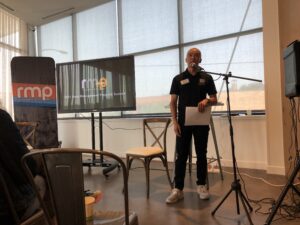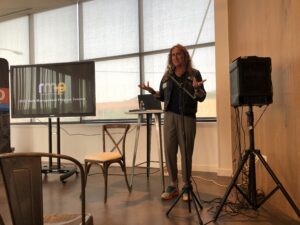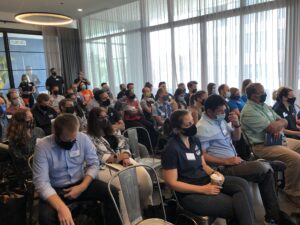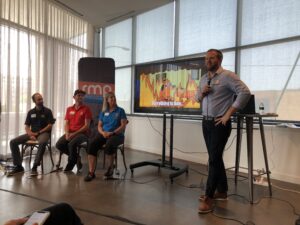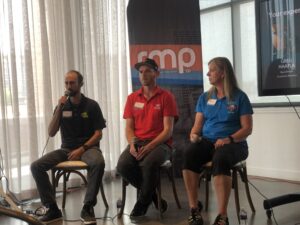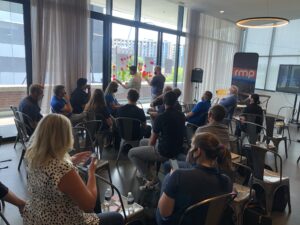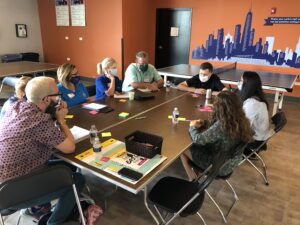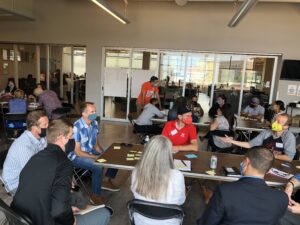2021 Race Management Program Summit focuses on importance of diversity, health and safety as endurance events return
In early August, leaders in the endurance industry got together for the first time in over two years for the Race Management Program Summit. Typically, this summit is held in the spring for hundreds of race representatives to collaborate and share best practices; the 2021 rendition was a smaller, more intimate reunion, and focused on the two topics on every race organizer’s mind: COVID-19 and diversity, equity and inclusion (DEI).
“There’s been a tremendous amount of learning that has been taking place during this time. We’ve taken the time for self-reflection and introspection, we learned a lot about ourselves and our purpose. I don’t think we’ll ever have this opportunity again, hopefully, but that’s a silver lining from this pause,” said Mike Nishi, COO of CEM, to open up the summit.
“We look forward to continuing this down the road and finding ways to bring us back together to share these practices and produce events safely.”
Keynote speaker Patti Flynn kicked off the day by sharing her inspirational story as a transgender athlete who also works as a consultant for the Equality Institute in Chicago. While she admits her experiences in the industry were mostly positive, she stressed the need for change and increased inclusion across endurance racing.
“Even though there is a movement and more visibility, it is still hard for folks to see themselves, and if you can’t see someone like you doing something you want to do, it’s very difficult to do it,” Flynn shared.
“When I talk to groups on DEI, we go through a list of key social identity groups (gender identity, sexual orientation, age, race, disability, etc.) There are people in all these social identity groups, some in multiple groups, in your events that have special needs of some sort. It’s critical for races and race directors to recognize and listen to folks from these groups when they are considering accessibility.”
Flynn then brought up Courtney Philips and Alberto Guzman to share their own unique experiences in the industry. Philips, the founder of GumboMedia and southside running club GumboFit, expressed her desire and passion to increase accessibility to BIPOC (black, indigenous and people of color) runners, especially for larger races.
“Running has changed my life and I’ve seen it change the lives of others so much. After creating a small-scale race series to help people run during the pandemic, I learned a lot about our community,” Philips says. “We need to think about the communities that are running year-round in the cities that we’re working in and shine a light on them; even though we have people flying in from all over the world, how can we show appreciation to the communities we’re working in and make it easier for them to participate.”
Guzman, a long-time athlete and member of Dare2Tri enlightened the audience by telling his experiences as a legally blind athlete.
“It’s never as difficult as it’s going to be to accommodate people with disabilities, most of the time organizations don’t have all of the correct information,” Guzman says. “There’s a fear there, for example that because someone is blind, they’re going to get injured. None of that is part of the question, nobody has all the answers but working with people from the community is key.”
The second session of the summit featured Kyle McLaughlin of Parachute Group, a risk-management group. McLaughlin has been working closely with CEM to help develop plans for the 2021 Bank of America Chicago Marathon, and opened up the health and safety portion of the day with an overview of the processes since March 2020.
“We are all planners and detail-oriented people. But many of us think of our event planning from start to finish, and COVID threw us all for a loop with our plans changing daily. Often times, as an industry we like to jump directly to problem solving, but being able to create plans that are sustainable requires methodical risk assessment,” McLaughlin explained.
McLaughlin’s panel included three race directors who have successfully held in-person events in 2021: Michelle Juehring from Quad-City Times Bix 7; Greg Haapala from Grandma’s Marathon; and Chris Hollis from the Atlanta Track Club. Each organizer had unique insights and takeaways to share with the group.
As the fall approaches and more events are coming back, CEM and the RMP group are looking forward to continuing these conversations and learning from each other through each experience.

